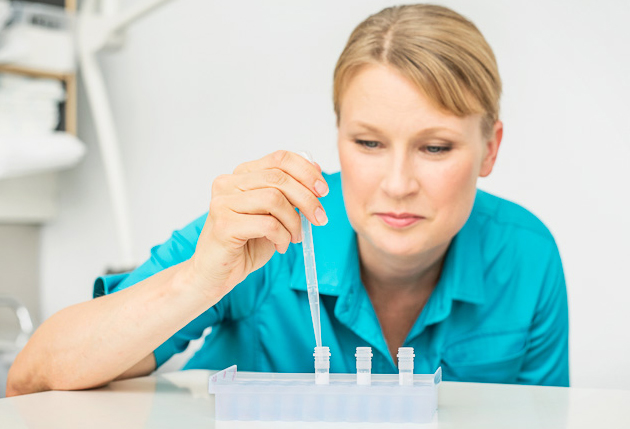Breakthroughs in the treatment of metastatic breast cancer
31.8.2022 Categories: Articles | Press releases
At the June 2022 American Society of Clinical Oncology (ASCO) conference, research findings on two new breast cancer drugs that not only prolong survival in patients with advanced breast cancer, but also alleviate symptoms and allow for more patients to be treated were presented.
From the point of view of an ordinary person, cancer research proceeds at a relatively slow pace, but sometimes major breakthroughs that take cancer treatment a huge step further occur. Such a leap forward was taken in June when the results of the new modes of cancer therapy were presented to the public.
– At this annual conference, the most important findings were related to the latest treatments for breast cancer, such as trastuzumab deruxtecan and sacituzumab govitecan. These cancer drugs significantly improve the outcomes of certain groups of patients with advanced breast cancer. There is currently no curative treatment for advanced breast cancer, but new forms of treatment can prolong patients’ lives and progression-free survival, as well as relieve symptoms. At the same time, more and more people have the opportunity to receive effective treatment, says Specialist in Medical Oncology, Associate Professor Tom Wiklund from Docrates Cancer Center.
According to Wiklund, in order to understand the significance of the research results, it is essential to know that there are three subtypes of advanced breast cancer that each require a different type of breast cancer treatment—and that are affected differently by the new forms of drug therapy.
Advanced breast cancer subtypes:
- HER2 positive (oestrogen receptor positive or negative)
- Triple negative (TNBC)
- Oestrogen receptor (ER) positive and HER2 negative
Life expectancy increased in triple negative cancer patients
– To date, only chemotherapy has been used to treat triple negative breast cancer, but in recent years, new drugs such as immuno-oncological drugs and PARP inhibitors have also been developed for this patient group, says Wiklund.
– At the ASCO conference, we received new treatment outcomes for treatment with sacituzumab govitecan, which we also introduced at Docrates about six months ago. With regard to triple negative cases, the new treatment resulted in a significant increase in life expectancy compared to “normal” chemotherapy. With the new treatment, the average survival time increased to 12.1 months, whereas the same figure for standard chemotherapy is 6.7 months. Two years after the start of treatment, 22.4% of patients who used the drug were alive. The corresponding percentage for chemotherapy was 5.2%.
Positive results for sacituzumab govitecan also in hormone-sensitive breast cancer patients
In this subgroup, too, a higher rate of response to treatment with sacituzumab govitecan than with conventional chemotherapy was observed.
– Progression-free survival time was 5.5 months, compared to an average of 4 months with standard forms of chemotherapy. After 12 months of treatment, the survival rate was 21.3% with sacituzumab govitecan and 7.1% with common modes of chemotherapy. These results are not quite as impressive as the treatment outcomes of triple negative breast cancer, but these patients had received even more previous treatments for advanced breast cancer, which always reduces the effectiveness of drugs and yields poorer results. However, for carefully selected patients, the drug can potentially bring significant benefits. We expect more detailed information on this study to be published during the autumn.
Three-fold number of patients may receive targeted treatment
Thanks to the results presented at the ASCO conference, the classification of the subtype HER2 is becoming more widespread. This means that more patients will be provided targeted treatment that applies the mechanism of the drug concerning the HER2 factor, trastuzumab deruxtecan.
– Previously, HER2 positive breast cancer patients accounted for about a quarter of all advanced breast cancer patients, but, in practice, HER2 patients treated with trastuzumab deruxtecan account for up to 75% of all advanced breast cancers, says Wiklund.
Overall advances in breast cancer treatment
The prognosis for breast cancer patients has improved significantly over the decades, which is thought to be due to improved early diagnosis methods and the provision of post- or pre-operative adjuvant therapy. According to Wiklund, the June conference also showed for the first time that the average overall survival rate of all breast cancer patients has also improved thanks to the development of drug therapy for advanced breast cancer.
– It is significant that, in the treatment of advanced breast cancer, we have an increasing range of effective drugs at our disposal to significantly prolong the life expectancy of severely ill patients. There have been major breakthroughs in cancer treatment in recent years. Metastatic breast cancer can nowadays often be treated as a chronic disease. At Docrates, we are already applying these newest treatments actively, says Tom Wiklund.
Tom Wiklund, an Associate Professor in Oncology, is a Specialist in Oncology at Docrates Cancer Center. He has specialised in the treatment of breast cancer, testicular cancer, sarcomas and lymphomas, as well as in the long-term follow-up of cancer patients and the late adverse effects of treatment. Wiklund has extensive experience in clinical work, international cooperation and clinical trials. He has also taken an active part in many oncological working groups in the Nordic countries and collaborated with cancer registries in Finland and the United States.
– When it comes to treating cancer, it is important to get to know the patient and their illness thoroughly and to turn every stone around. There are many options for cancer treatment. I always try to find the best possible treatment for each patient by discussing the matter with them, says Wiklund.













